Five Fits With: 'Stranger Things' Star Brett Gelman
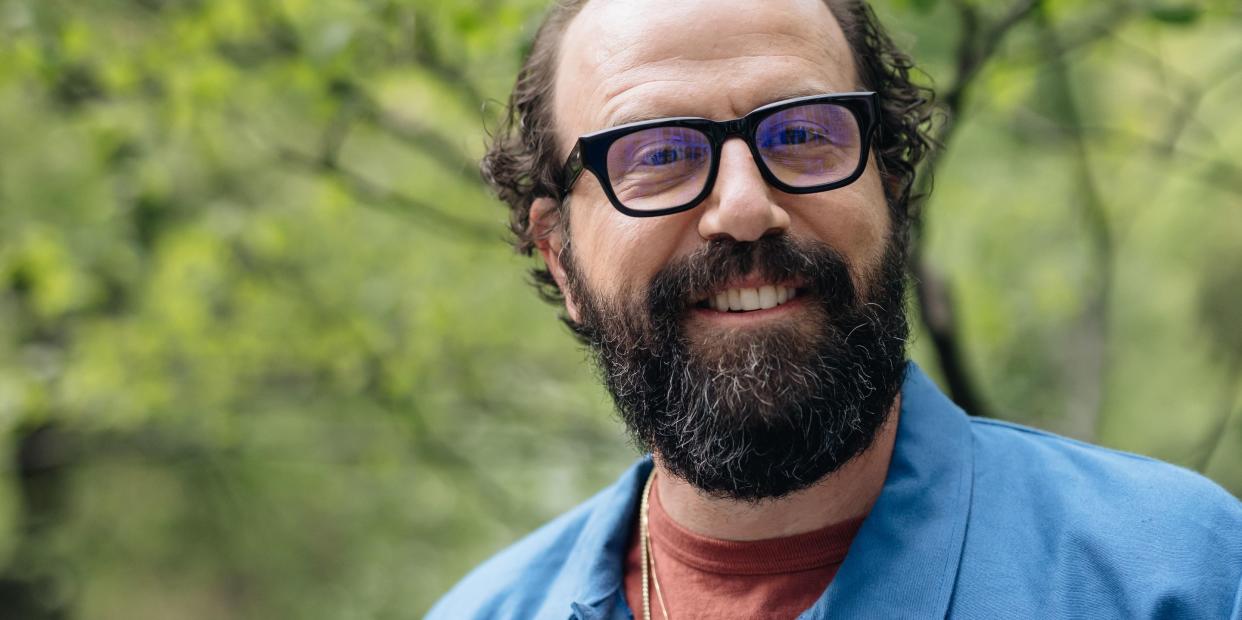
- Oops!Something went wrong.Please try again later.
- Oops!Something went wrong.Please try again later.
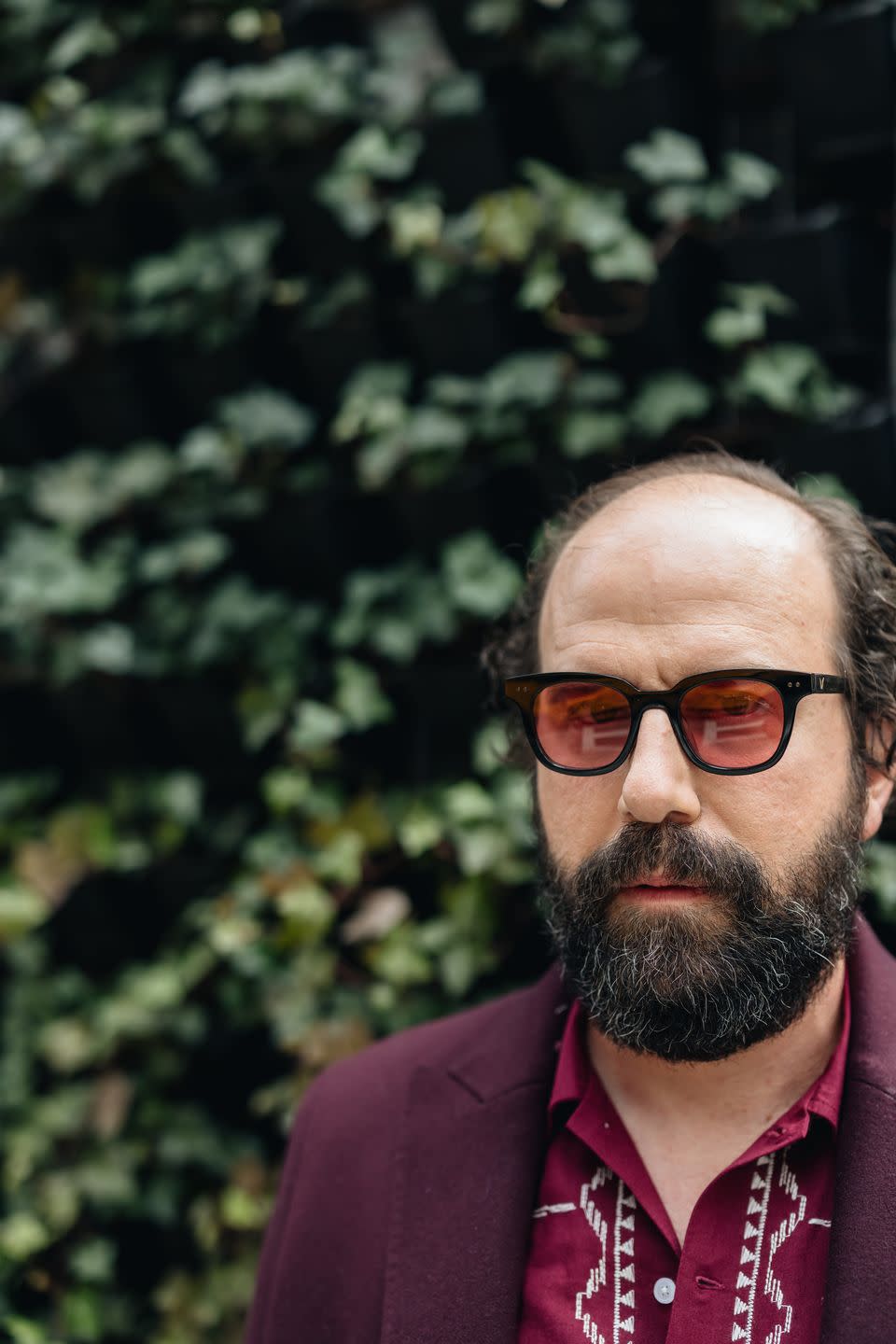
Brett Gelman has appeared in a vast number of television shows and films, but with his most recent role in Stranger Things, he’s starting gain proper recognition for his talent. It’s not a new thing; he’s always been funny, and he’s always been able to tap into the depth of the human psyche to inform how he plays his characters. Perhaps you knew of Brett prior to Stranger Things, but you probably didn’t know that he’s obsessed with fashion, in all its forms. Like most fashion fans, his interests inform his style. He’s deeply into '90s hip-hop, and references the styling and products of Aimé Leon Dore often; he’s into dark films and comedic giants from the latter half of the 20th century, so he also finds himself in Bode and Dries Van Noten.
Gelman calls himself “Jaddy,” a portmanteau of Jewish and daddy, and is all about embracing the strength and resilience that comes with his heritage. He’s also about embracing its quirks, along with his own. Below, Brett and I discuss his upbringing and subsequent path to acting, the woes of childhood neuroticism, budding sexuality and obsessive compulsive disorder, what comedy means to him, which brands and stores he loves, his role in the new season of Stranger Things—"It's one of the greatest things ever made and this season is high fucking octane. It is every genre taken to the millionth percent. It is so fucking good"—and plenty more.
Let's start with the basics. Tell me a bit about your upbringing and how the paternal figures in your life impacted who you are today?
My father, who was a very tough Jew, went to the gym every day and he was not somebody who took any shit from anyone. He was a very silent, stoic, private figure—did not believe in sharing his emotions a lot. That inspired me to not be that way. Because I saw that he'd sort of shoot himself in the foot with his silence and his unwillingness to explore his feelings I also saw the benefit of his toughness and the simplicity in his outlook. Whereas my mother, my sister and I very obsessively examined and questioned everything. There was definitely some toxic masculinity going on and in the end I rejected it. I think it's also what made me become vastly introspective, but I also think that I do too much questioning sometimes. And I strive to have a little bit more of his simplicity. I had a child psychiatrist, Dr. Jay Hirsch, who I basically had a nervous breakdown in front of when I was in the fourth grade.
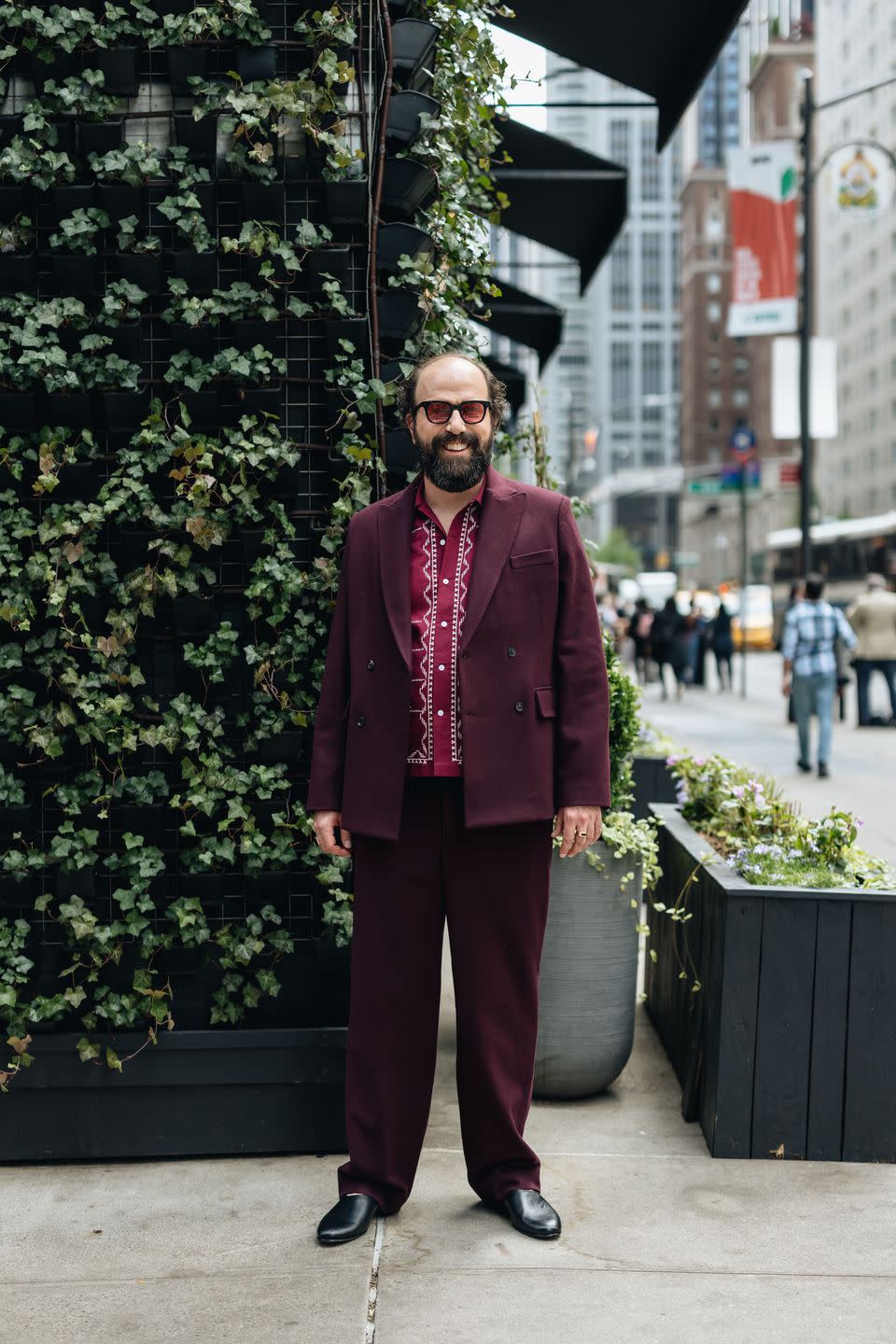
Tell me more.
I was scared that I was gay. When I was in second grade, me and another best friend, we kind of messed around and did what we thought was sex. It was like, you played sex, me and this boy best friend. It was fun, and then we just stopped doing that. Two years went by and I learned what being gay was. I was in fourth grade. It was the '80s. It was not seen as a positive thing. I felt like I had done something wrong. I remember I was laying on the couch and I watched David Lynch's Dune and I felt like I was rotting inside. One day my dad was out of town. My mom had two friends over. We were eating pizza and I couldn't eat. I was like, "Mom, I got to tell you this right now." I'm like eight years old. We go into the bathroom and I told her thinking she's going to disown me. But she said, “No, no, that's totally normal, kids do that.” I remember I just devoured that fucking pizza. I was so relieved and I was able to eat.
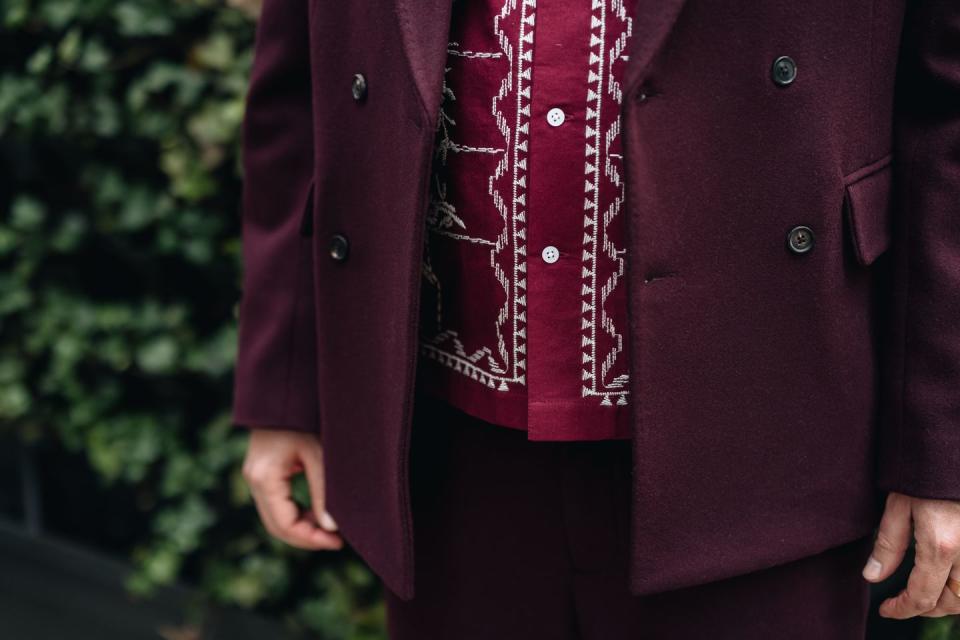
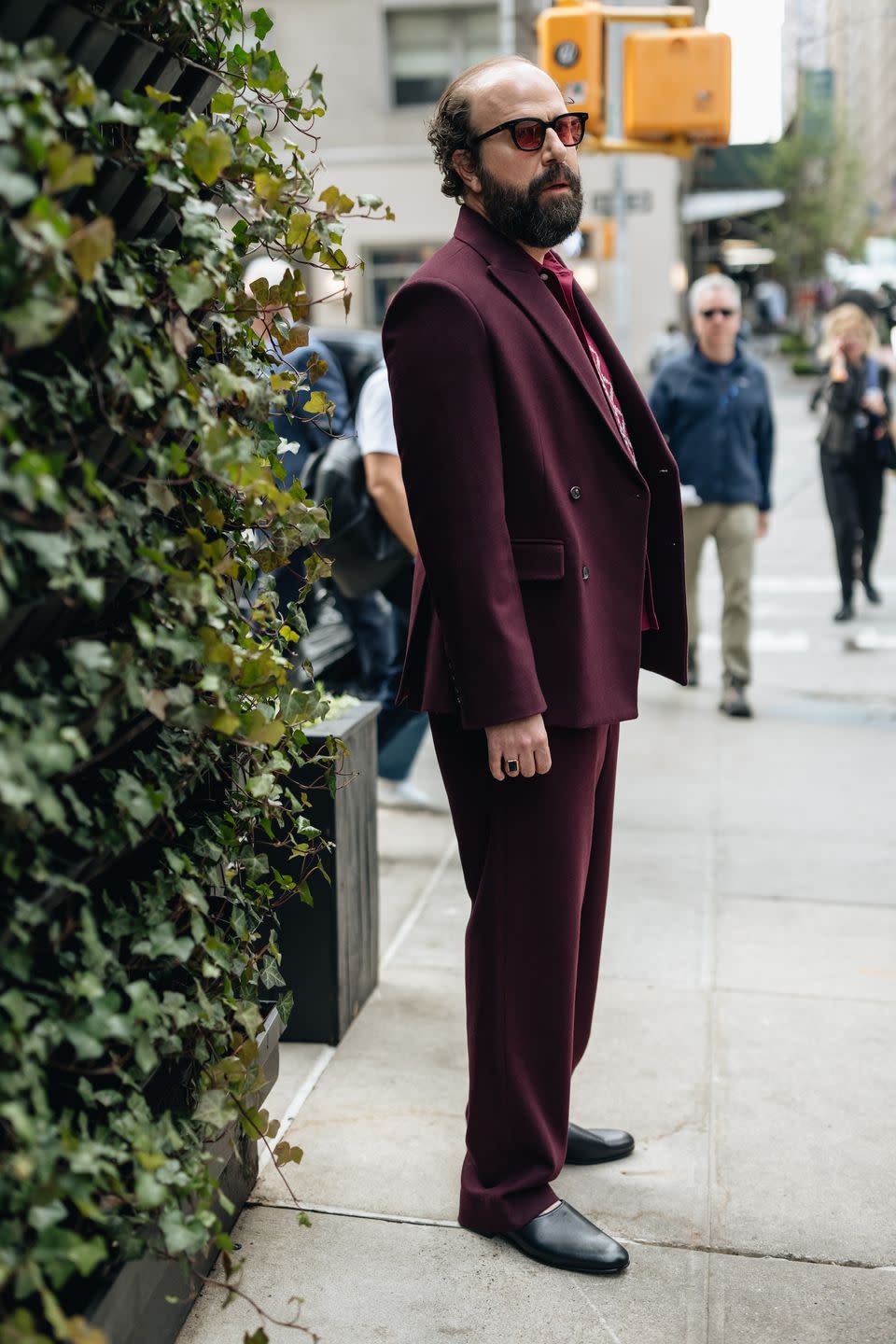
Because of kids at school, I still felt like I had done something wrong, so I started seeing a psychiatrist and then realized that I was obsessing about a lot of things. Turns out I have obsessive compulsive disorder. People usually think that it's associated with physical rituals but it's also true with mental rituals and obsessive thinking. He helped me work a lot of that out too. I was always weird too, because I loved comedy and I loved movies and I didn't really like love sports. I wasn't a good athlete. I was uncoordinated. So he would talk to me about my favorite Mel Brooks or Eddie Murphy or Peter Sellers movies. He was a great parental figure who made me feel really seen.
What led you to acting?
Oh wow. First, I want to talk about the other parental figures in my life, my uncles, Allen and Andy, who were huge figures of comedy to me. I wanted to be them because they made me feel like I was being brought up by a comedy team. They were very much like my second and third father because we all lived very close together. That boisterous energy, that joy, was something that I wanted to always feel. My father and my uncles were definitely the reason I smoked marijuana. They made it look really cool. My dad could smoke me under the dashboard. He would drive me to college and we'd be getting high on the way there. I'd pass out and he’d keep going.
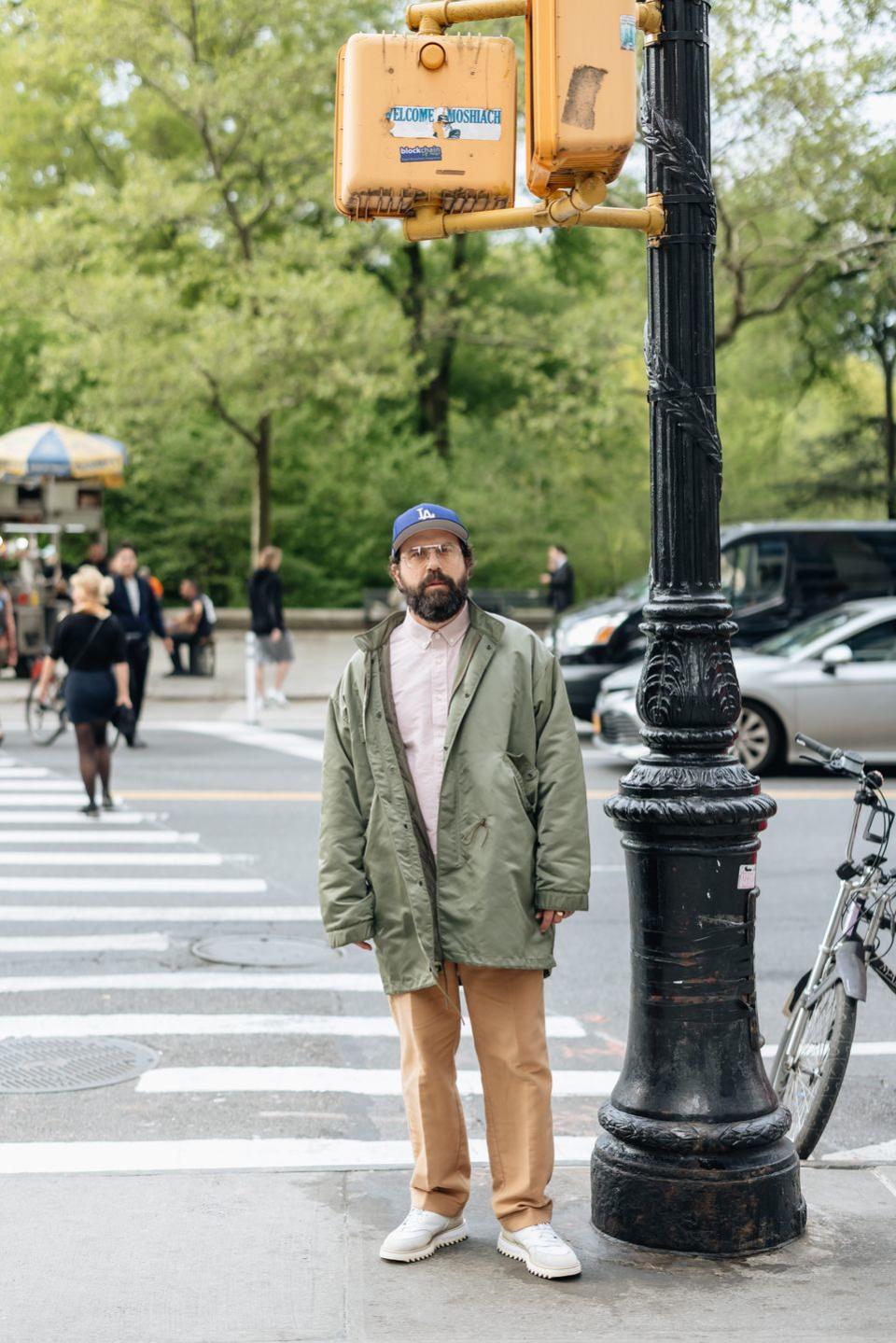
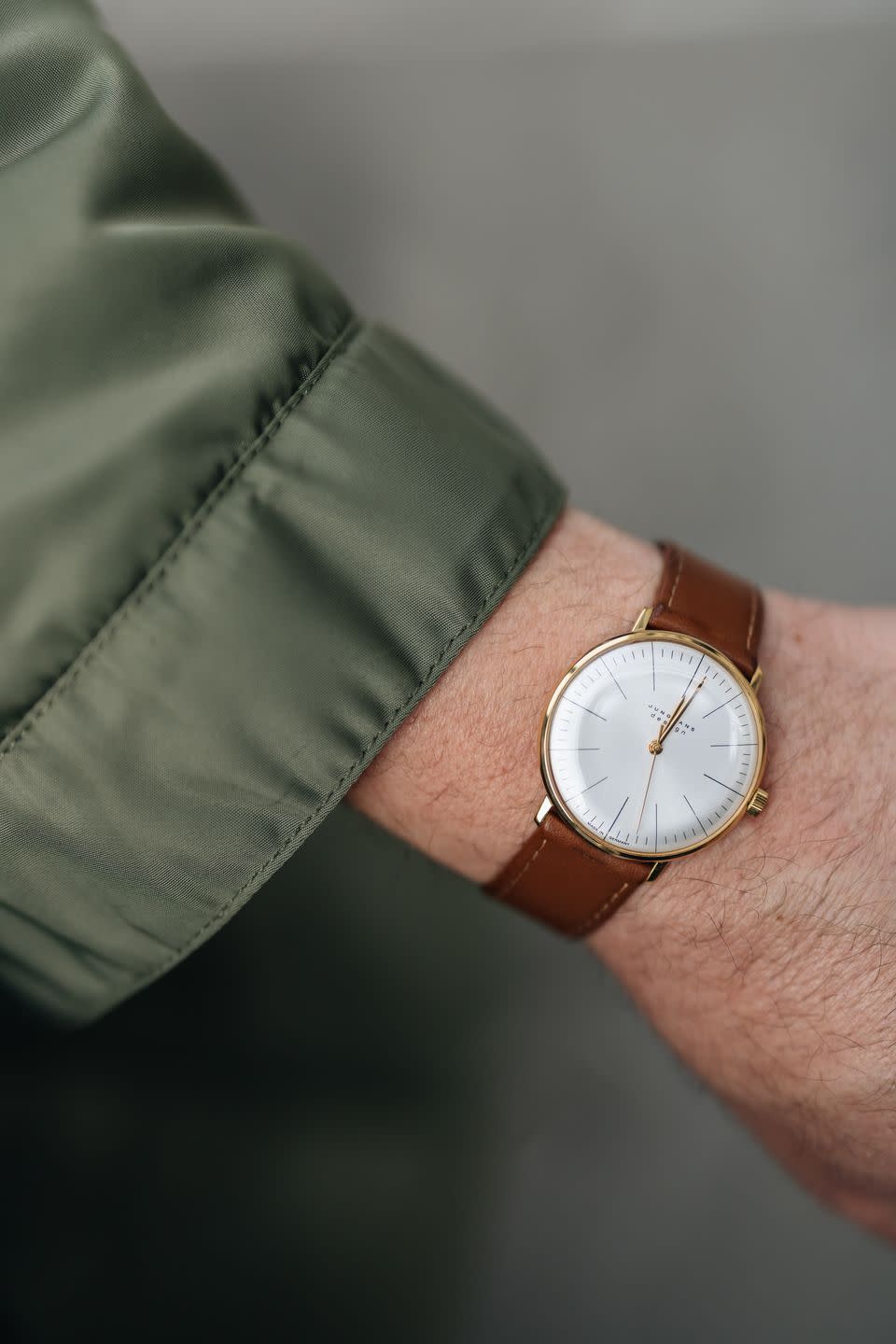
Holy shit.
I started wanting to act when I saw A Night at the Opera when I was around six years old. I was also obsessed with comedy as a kid, then I got into high school and I started to learn about plays and that got me more obsessed with acting in general. I started to learn about acting, then I went to conservatory and it was all constantly illuminating; still is. Whenever I see a new performance that inspires me—of new and of old that I haven't seen—it just reinvigorates me, like, This is the way to do it. The first time I saw the Cassavetes movies and those actors, it's just like, That's another way I want to be.
What do you think is the role of an actor on the broad spectrum of humanity?
We do serve a function in the world. We're people who an audience can identify with. We entertain, and also hold up a mirror. Acting is something where you can really present flaws in a safe, protected way. The audience is protected in how they experience it, rather than some of the other arts where you're more directly relating the person to the piece that's being made. It gives you the freedom to be flawed right now, which there isn't a lot of. I'm not pointing a finger, Cancel culture this and cancel culture that, and oh no, no. I do believe that we need to keep evolving and changing and we shouldn't be further traumatizing any disenfranchised or oppressed groups. I think that we should keep investigating how to be responsibly provocative and observe our blind spots. I also think we have to be able to accept more of the nuance of making mistakes in life, the nuance of not being perfect. Acting is something that really allows that because you're safe in playing a character. The audience is safe and watching that character.
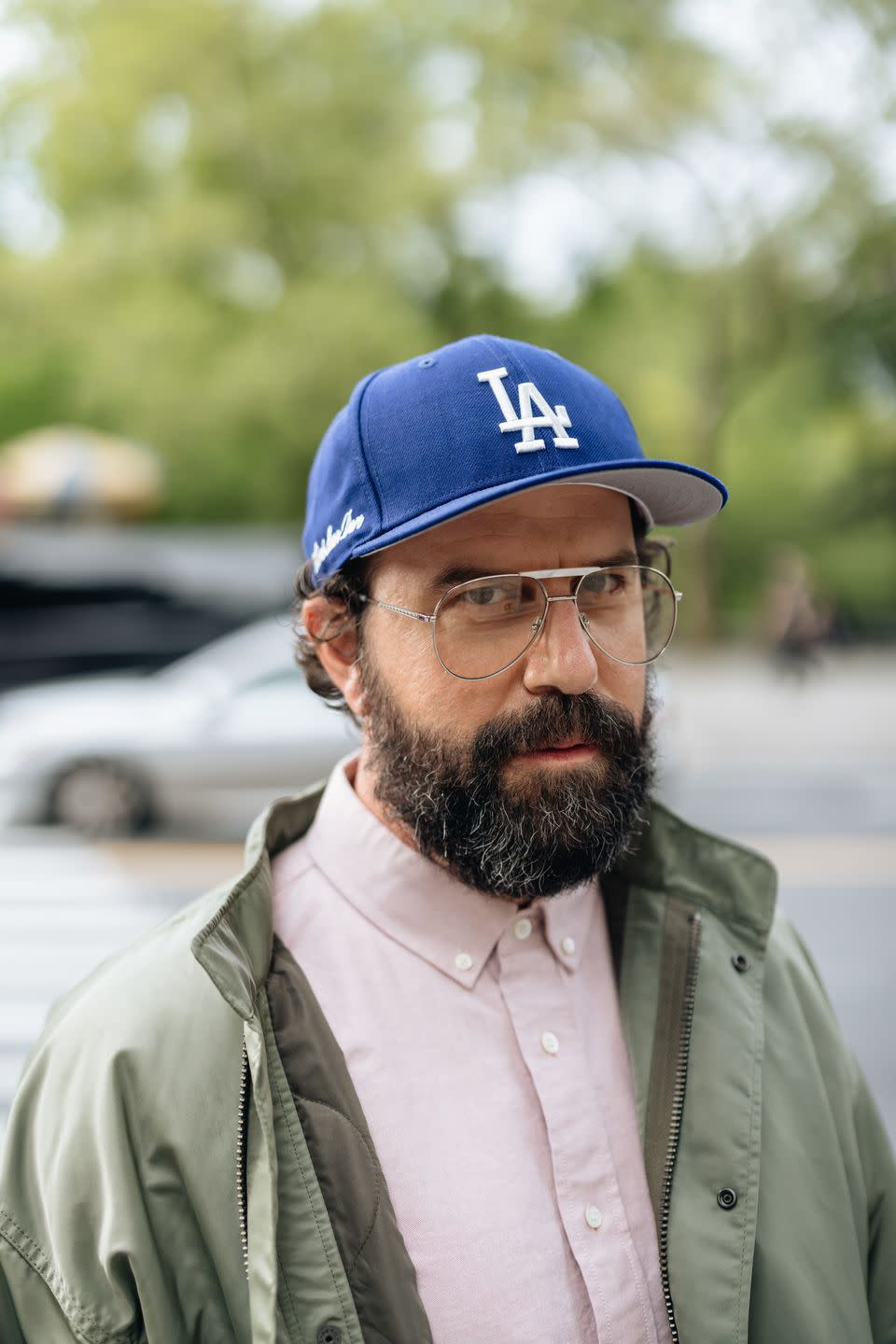
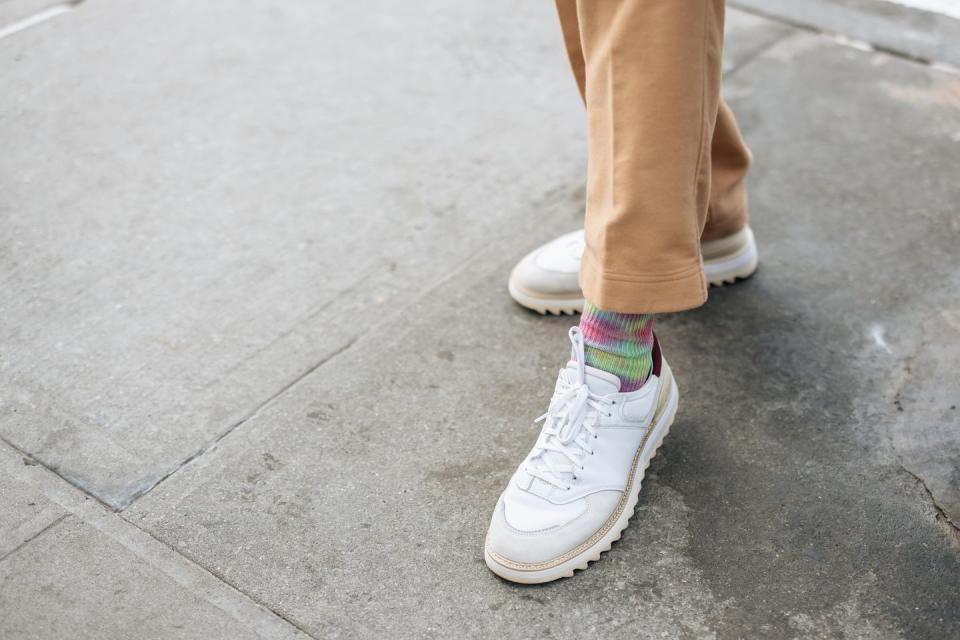
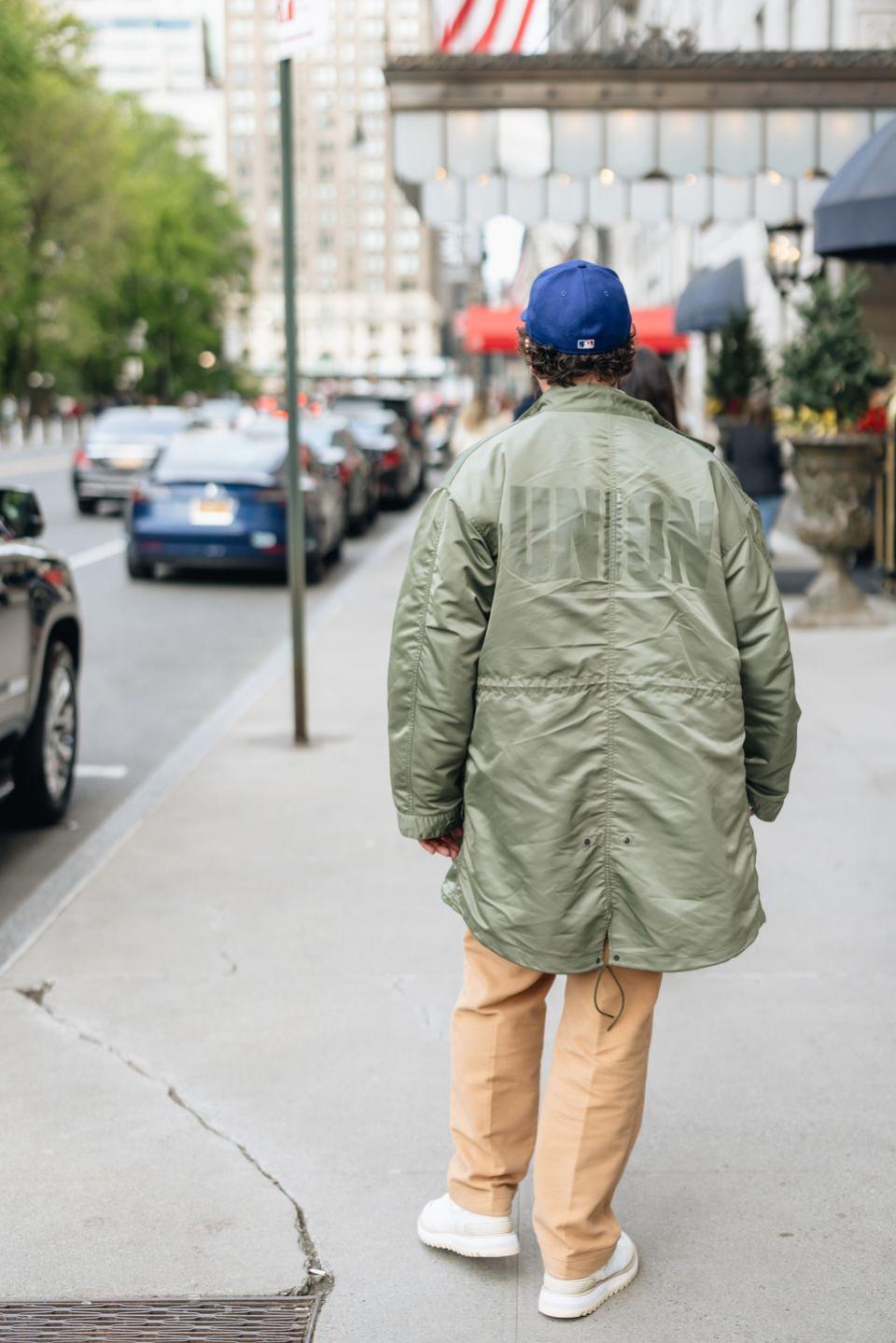
What role does comedy play in your life?
If it wasn't for comedy, I'd be dead. I seriously think so. I had no idea of how to do it at all. I don't think I was funny until I was 16 years old, maybe 15. When I watched all of those actors I mentioned before, they were like my family growing up. They my life source. Marx brothers, Mel Brooks, Peter Sellers, the original Saturday Night Live cast, Bill Murray, John Belushi, Gilda Radner, Madeline Kahn, Harvey Korman, Gene Wilder, Eddie Murphy, Steve Martin, Robin Williams; I was obsessed. It fed me. I'd watch my favorite comedies over and over and over again in the same day. It fused itself with my DNA. Comedy gives you a place to take how awful life can be and how awful you can be and laugh at that. To laugh in those moments, it's like a gift that you've been given… Being able to make other people laugh is a real joy. I want to be recognized as a great dramatic actor too. I really don't think that there is that far of a line between great comedic acting and great dramatic acting most of the time. I think that there are comedic actors who can't do drama, because in a way they're not acting. They're playing the comedy, in the same way that some dramatic actors over-intellectualize or over-complicate being funny.
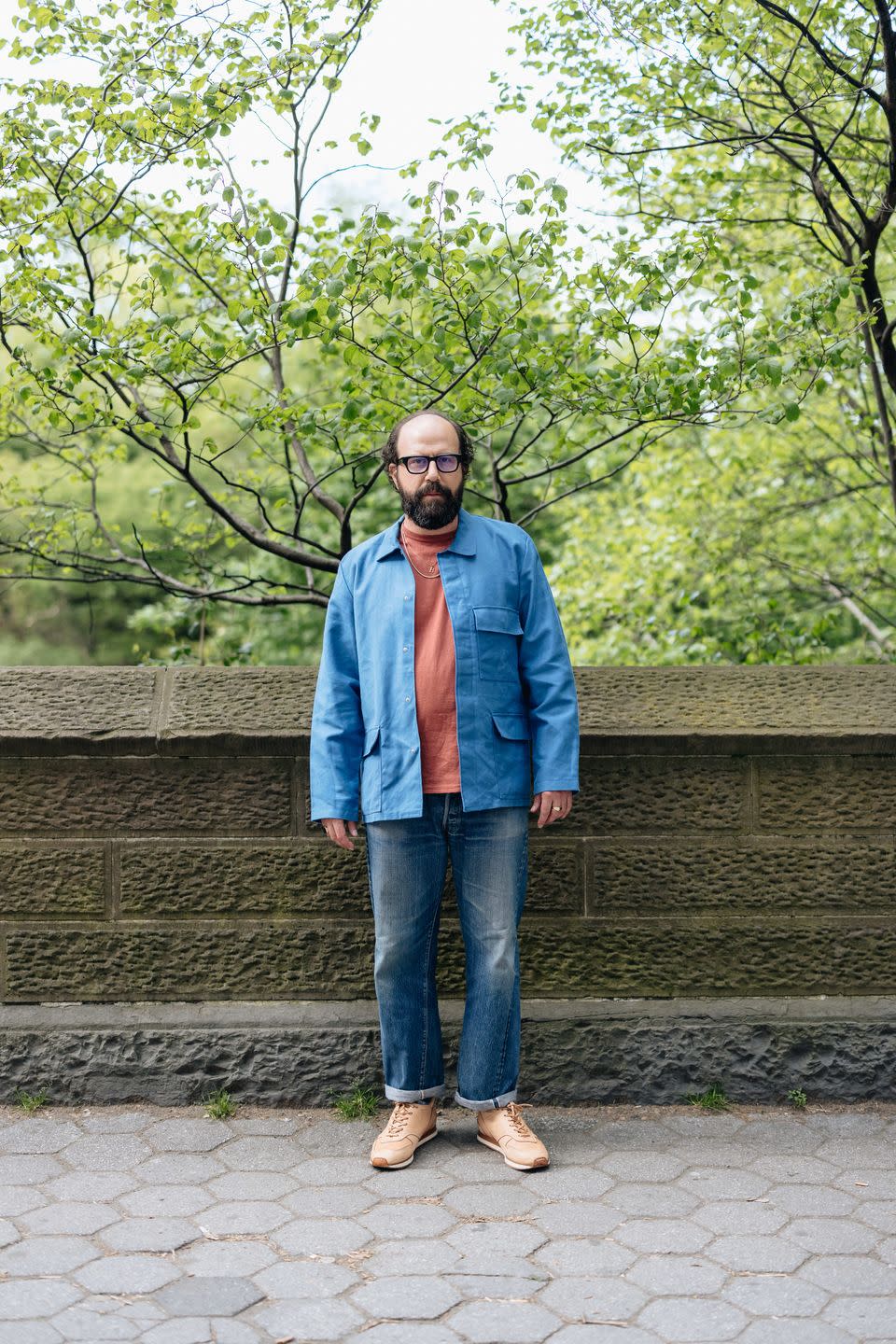
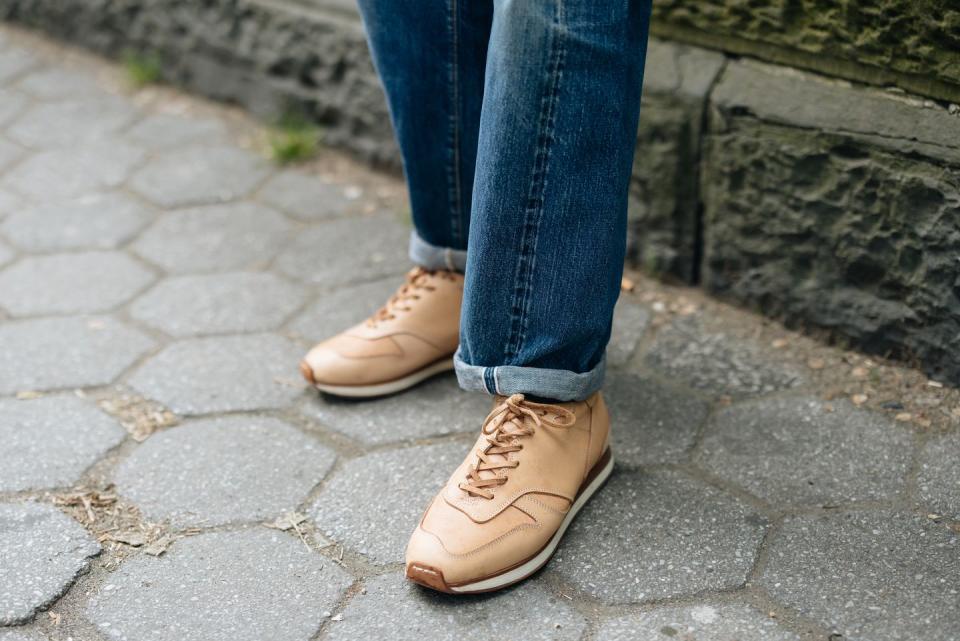
I just saw Macbeth a few weeks ago, with Daniel Craig and Ruth Negga. It was really funny at times, and I thought that's what they really nailed down. Shakespeare can be funny through the drama.
Shakespeare's a prime example. You watch Lynch films or even a Michael Haneke film and it's so fucked up, but especially Lynch is meaning to be funny when he is nightmarish. I don't know if anybody else besides me would find certain moments in Michael Haneke films funny. But it's just so nightmarish that I'm just like, Wow. To be able to let your imagination go there is the equivalent of letting your imagination go to a funny place. I've had shame over being funny at times. I think you're discriminated against when you're funny as an actor. I'm still delving into a role no matter how funny something is. In my four minutes in The Other Guys, I'm going into Will [Ferrell] and Adam’s [McKay] tone in that. I'm drawing from the pain of alienation and the desperation to be liked and I'm using that. I came up doing a lot of alternative stand-up, sketch, and improv. I never made my special. I was so inspired by Bo Burnham's Inside. I respected that so much; it's very much my vibe. I'm different and he's different than everybody else. But I saw it and thought, I want to do that. I haven't done live comedy in a while and I get scared sometimes that if I do that, it's going to hurt me and the growth of my dramatic career. I think that's a way in which I hold myself back and put myself in a box. I want comedy to start playing a more active role in my life again as well.
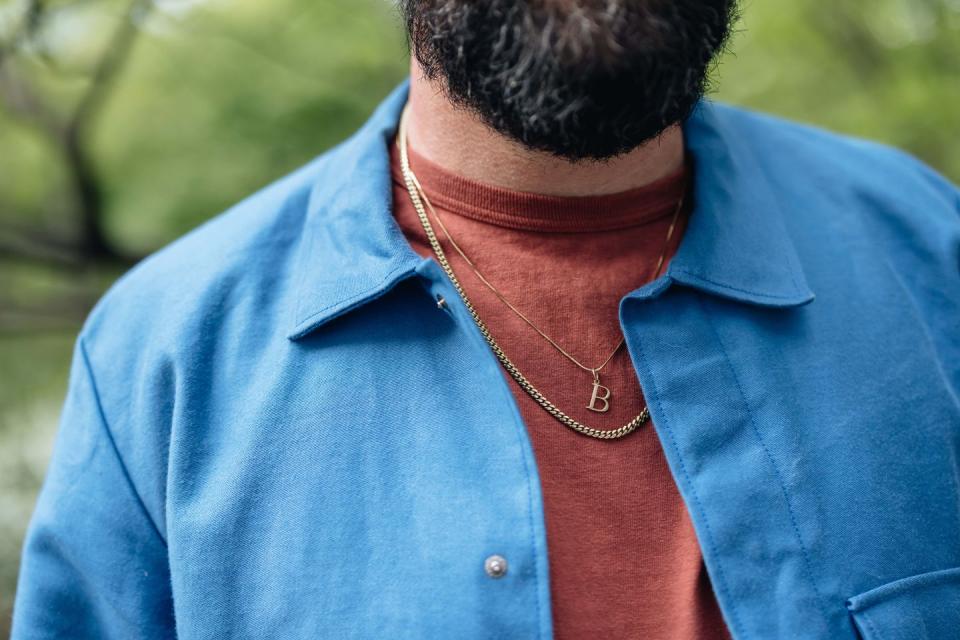
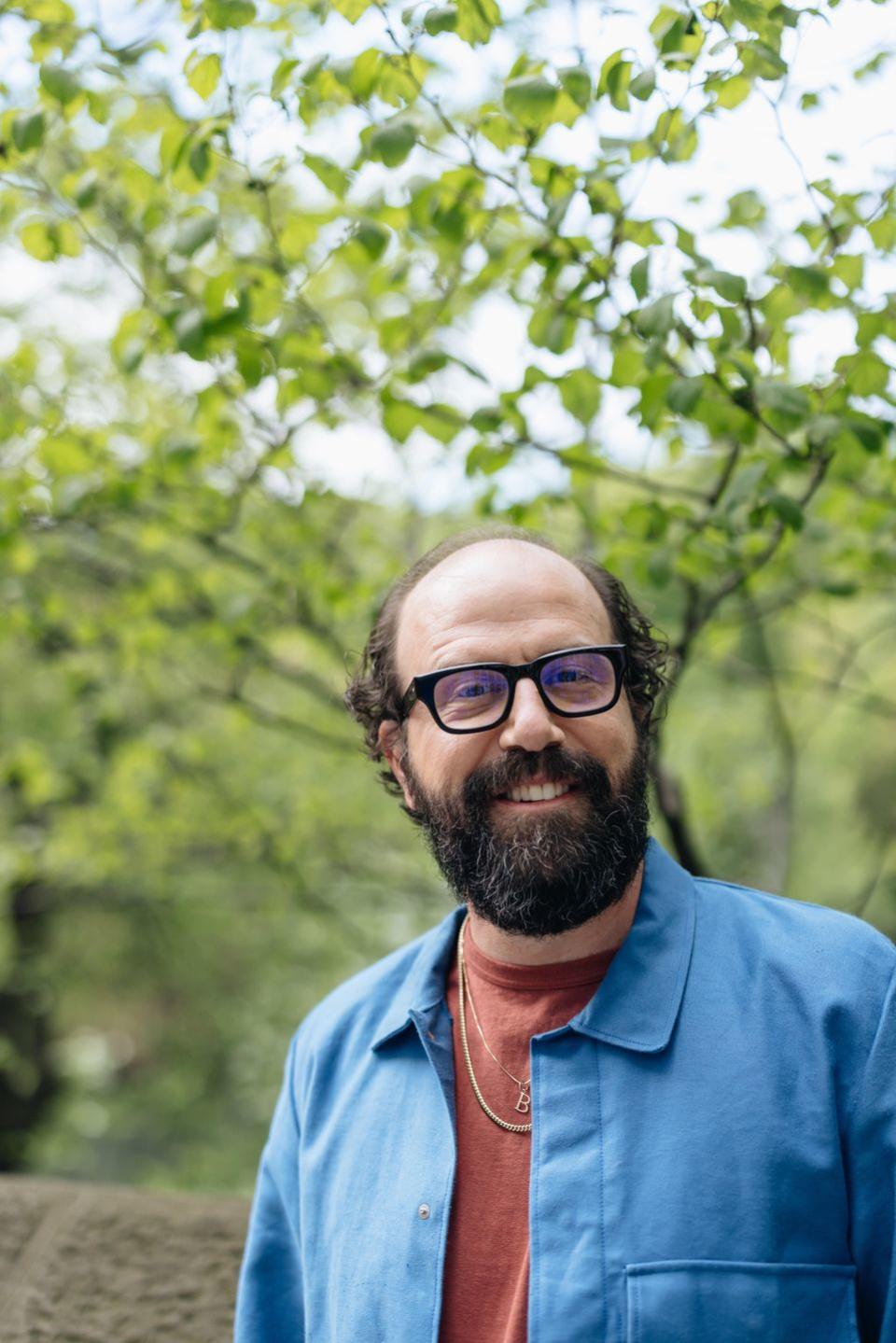
You've obviously starred in some big roles. Do you have a favorite so far? And what was the process like preparing for that?
I've been really lucky to work with a lot of incredible artists and play a lot of incredible roles. If I had to choose, gun to my head, I would say it would be Isaac in Janicza Bravo’s Lemon. I co-wrote that with her. That said, if you're working with Janicza, its Janicza's show and you're serving Janicza's vision. A lot of me is in that writing. Once we had written the script, it was about trusting her vision, because she's a genius. Preparing for that role was a lot of delving into the pain of where it came from in writing it. There was also a lot of physical work; Janicza is also a very physical director. She loves blocking. She loves to make film theater. We did walking rehearsals, we did gesture rehearsals. On top of that, I would go to my acting coach at the time and do all these different exercises to really access the pain of my character. A lot of that was delving into my own pain, practicing substitution and sense memory because that's really what Method is: sense memory.
The Method is not being the character all the time. The Method is using pieces of yourself in order to connect to the character through sensory exercises. Being the character all the time is something else. But that is what is popularly known as being Method. For me, it's always using a lot of myself and then physicalizing the role and constantly doing this whole whirlwind process of having the character meet you, while not bringing yourself into it too much, using what of you can be used and then physicalizing the character, but not doing it so much that you're doing a caricature. It's a messy process for me, but I'm a messy guy.
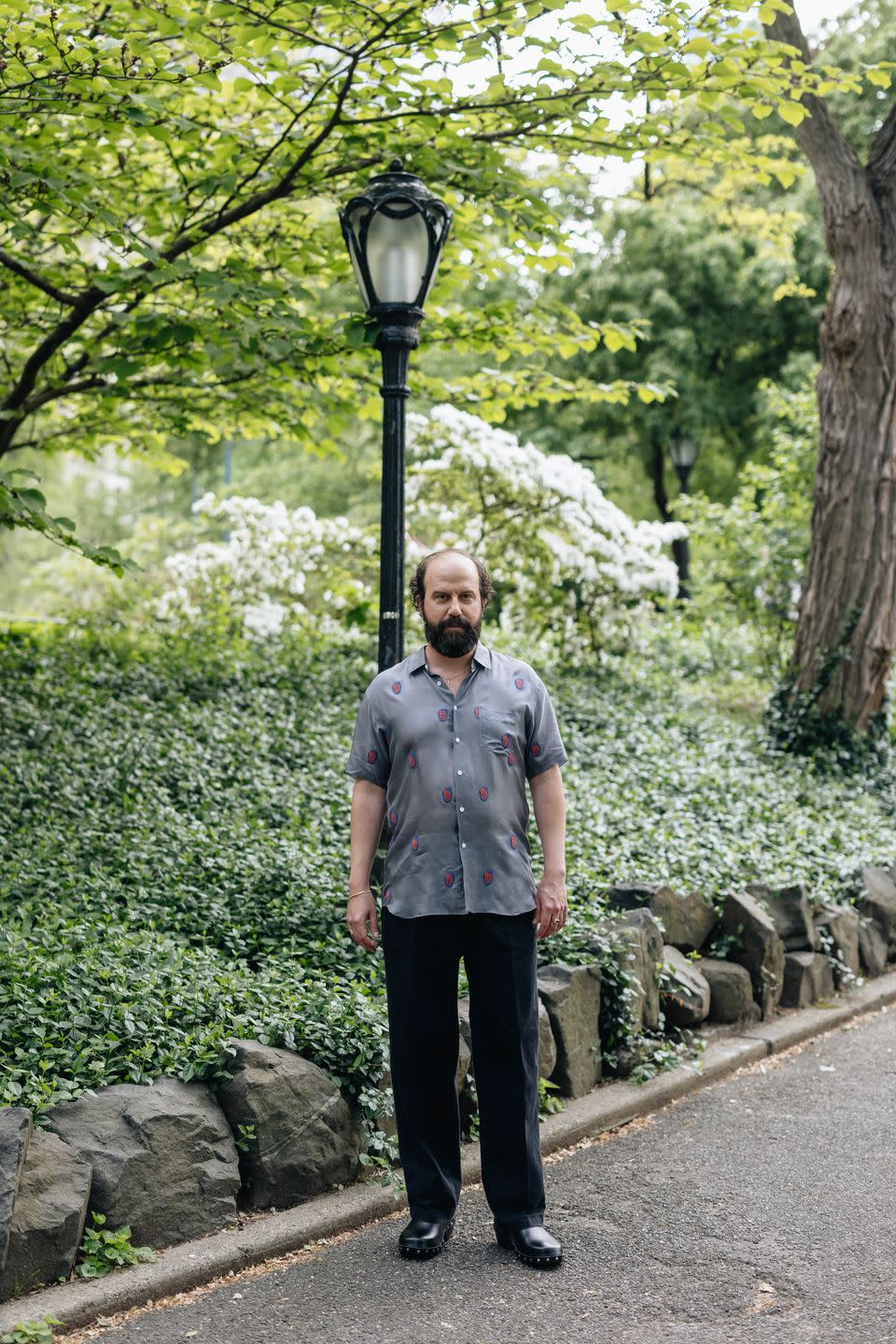
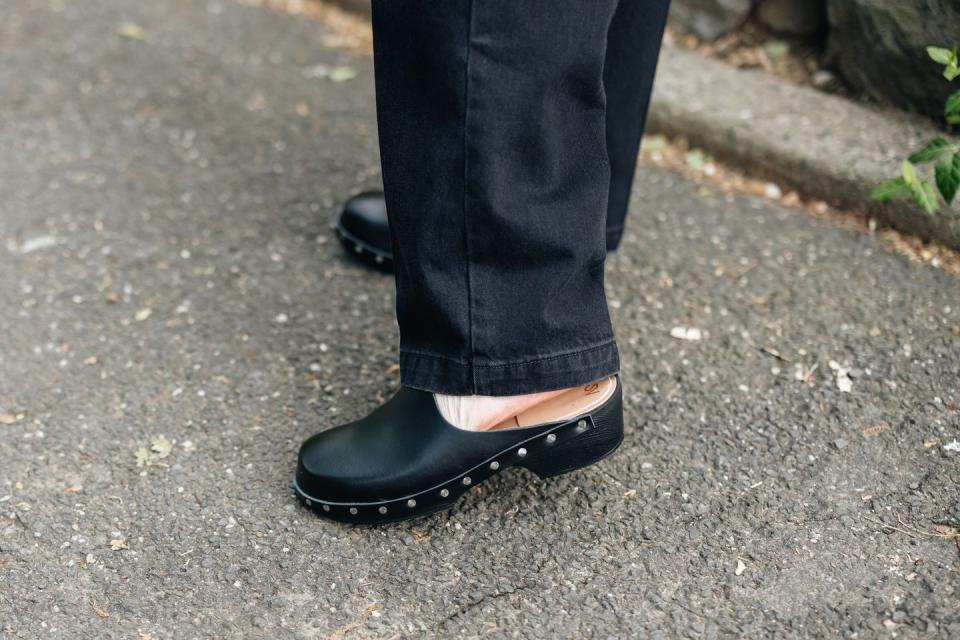
How do you find your own personal style? Do you have any style heroes?
My own personal style is sort of a mixed bag. I like to be tailored, but I also like doing an oversized look. I love high fashion. I love designers and labels, but I also love street fashion. I like to be eclectic within those parameters. I feel like I'm still learning too. I love the art of fashion. To limit yourself in terms of what it is that you can wear or are willing to wear is equal to limiting yourself in any other way. In terms of style heroes… I have a whole '70s thing sometimes, like a tribute to Jack Nicholson and Elliott Gould. I also love nautical wear and denim wear. Tailored looks of Paul Newman are very inspiring to me. I love Tom Ford's personal style. I love New York '90s style.
I love this whole oversized moment that we're having with brands like Aimé Leon Dore and Balenciaga that are really capturing it in an exciting way. They’re capturing the '90s in the way that Bode is capturing the '70s. It’s their take, a futuristic take, on those periods to me. Then there’s Ye workwear and leather style. I haven't gone into the leather zone yet. I'd like to venture into that Balenciaga leather thing.
What are some of your favorite places to shop?
I love Aimé Leon Dore. I love Bode. I love Dries Van Noten. I love the classics like YSL and Gucci, but I don't have a lot of that clothing because it's really expensive. My go-to place in L.A. is Mohawk General. I just think the guys who work there have such amazing taste and they go back and forth between all of these different styles that I'm talking about. They have a wide representation of that there, and they have a wide knowledge. They're very artistic in how they help me shop for looks there. Same with the guys at Aimé Leon Dore here [in New York]. They know what's going to look good on you. If you put on a piece, they're not going to try and hawk it to you and convince you to buy it. They'll tell you that’s not working and they immediately know what to pull for me. I love Thom Browne. Yeah, I love a lot of the people that a lot of the people love. I love Jerry Lorenzo's style. I like the way he's putting Fear of God together. He’s taken street and he's taken fashion to a whole new level. I don't mean street in a derogatory way, the street arts are high art to me.
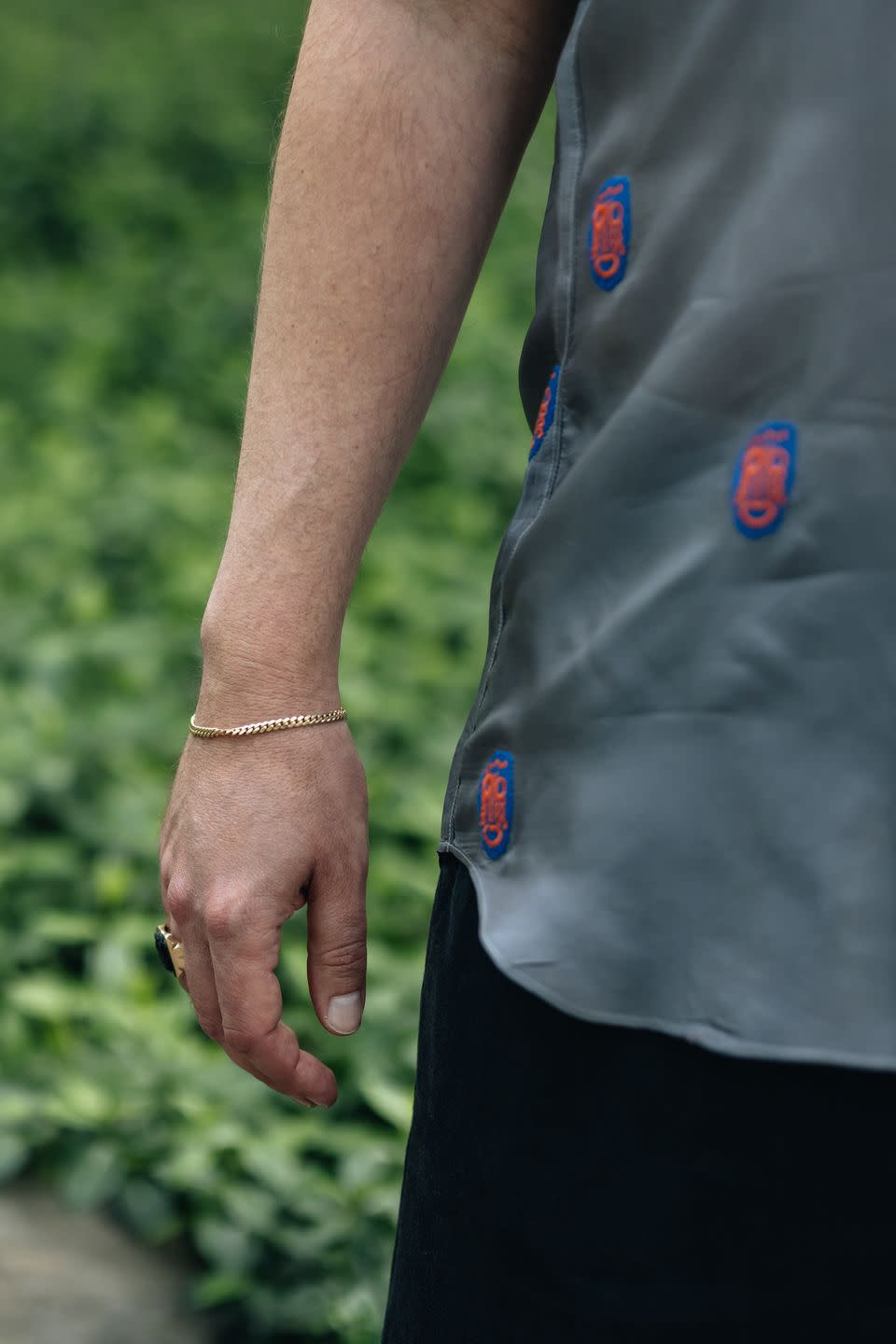
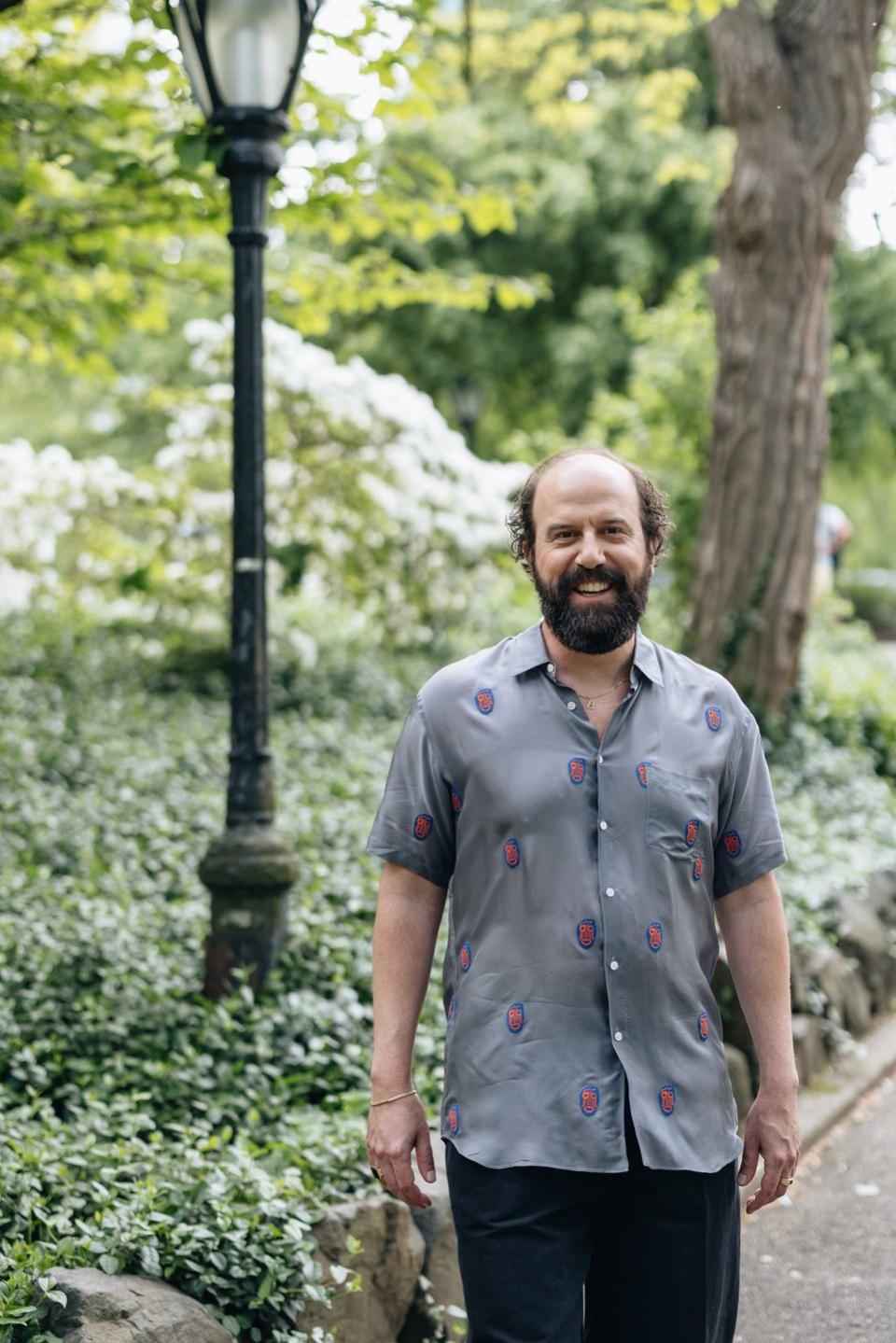
What are some staples you think every guy should have in his closet? What are your three favorite pieces in your wardrobe?
You need denim; a good pair of blue jeans, a good pair of vintage Levi's, or some great Japanese denim. You need a white pair of Air Force 1s. You need beige Wallabees and white tees. As for favorites, I have this oversized, Japanese corduroy, Sillage suit. I got it at Mohawk and the guys that sold it to me said nobody in the United States had worn it yet. So, my narcissism of course loves that. This Dries Van Noten tropical pajama set that I wore to the Zola premiere, I love very much. Finally it's an oldie, but goodie, I have this vintage YSL Hawaiian shirt that I will never get rid of.
I'm a huge film guy. I'm especially curious to get a talented actor's favorite movies of late.
I think Zola is a masterpiece and it was the most needed film of the last five years, both for cinema and for who it represented and who it was told by. It’s empathy incarnate. It is a piece that like people can enjoy on many levels. I'd say Uncut Gems is a major favorite. Sandler's performance in that is one of the greatest film performances of all time and maybe the best dramatic performance next to his performance in Punch Drunk Love. I loved The Square. I think Ruben Östlund is really special and mixes a lot of tones together very effectively. With all four of these filmmakers, they're able to bounce through in an industry that's obsessed with talking about tone and categorizing tone in a very limited way. They don't pay attention to that. They're able to give a variety of tones and form that into one thing.
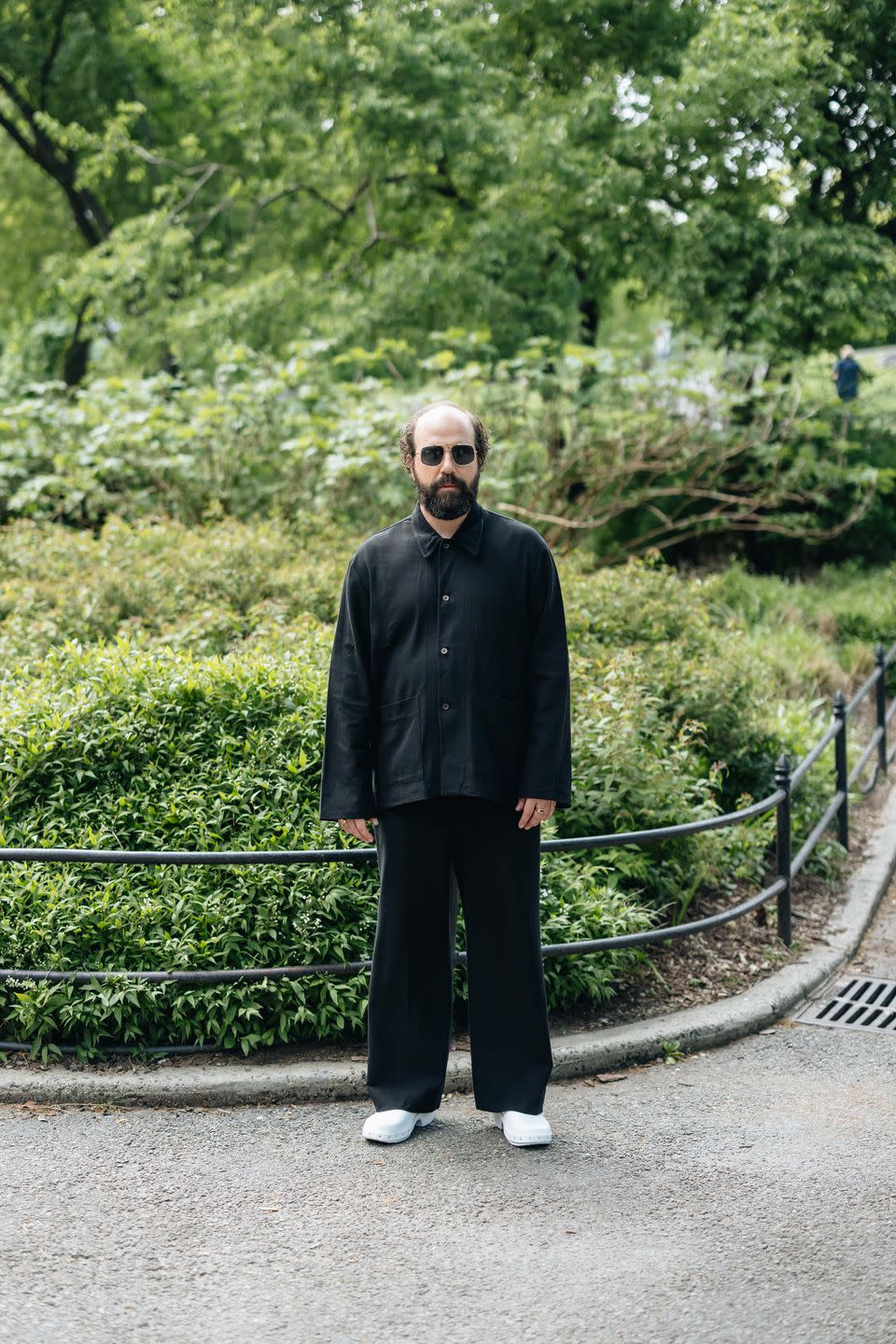
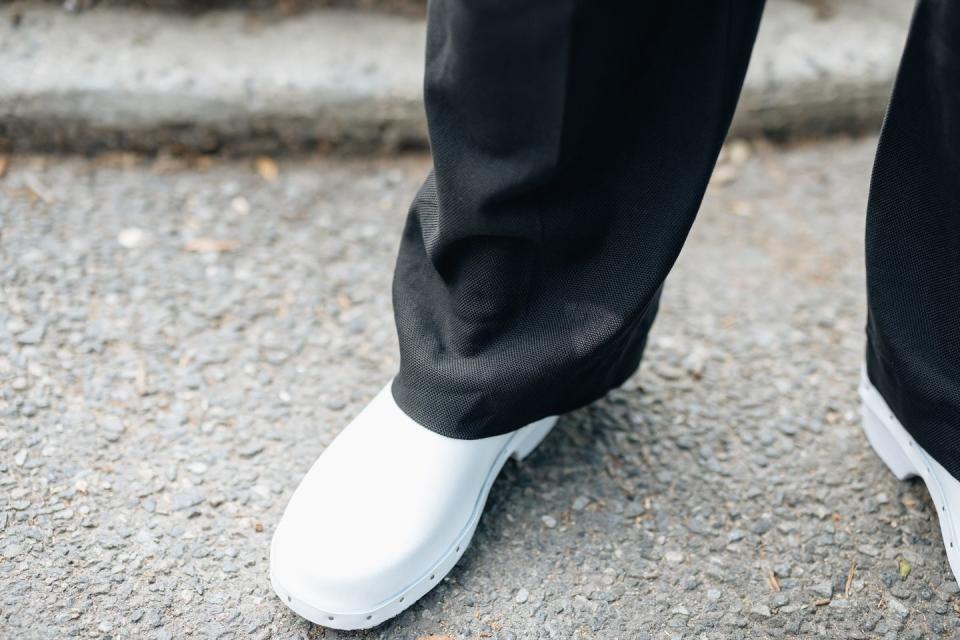
What does being Jewish mean to you?
Being Jewish means being very funny, very neurotic. I’m really into redefining the sexy Jew in this day and age. I think antisemitism is the whispered bigotry. I think that being Jewish means that you're hated by everybody. To white people you're not white. To people of color, you're white. And both are true. We're hated by the left and we're hated by the right. I'm not saying that we're more oppressed than other oppressed groups in this country. This makes us funny and really neurotic and aggressive a lot of the time, but I'm into harnessing all of that in what I do and how I present myself in my life and in my work, even in a sexy way when it calls for it. Obviously I don't need to only play sexy characters. I've certainly played characters who are not, but I'm really interested in pushing that sexuality right now.
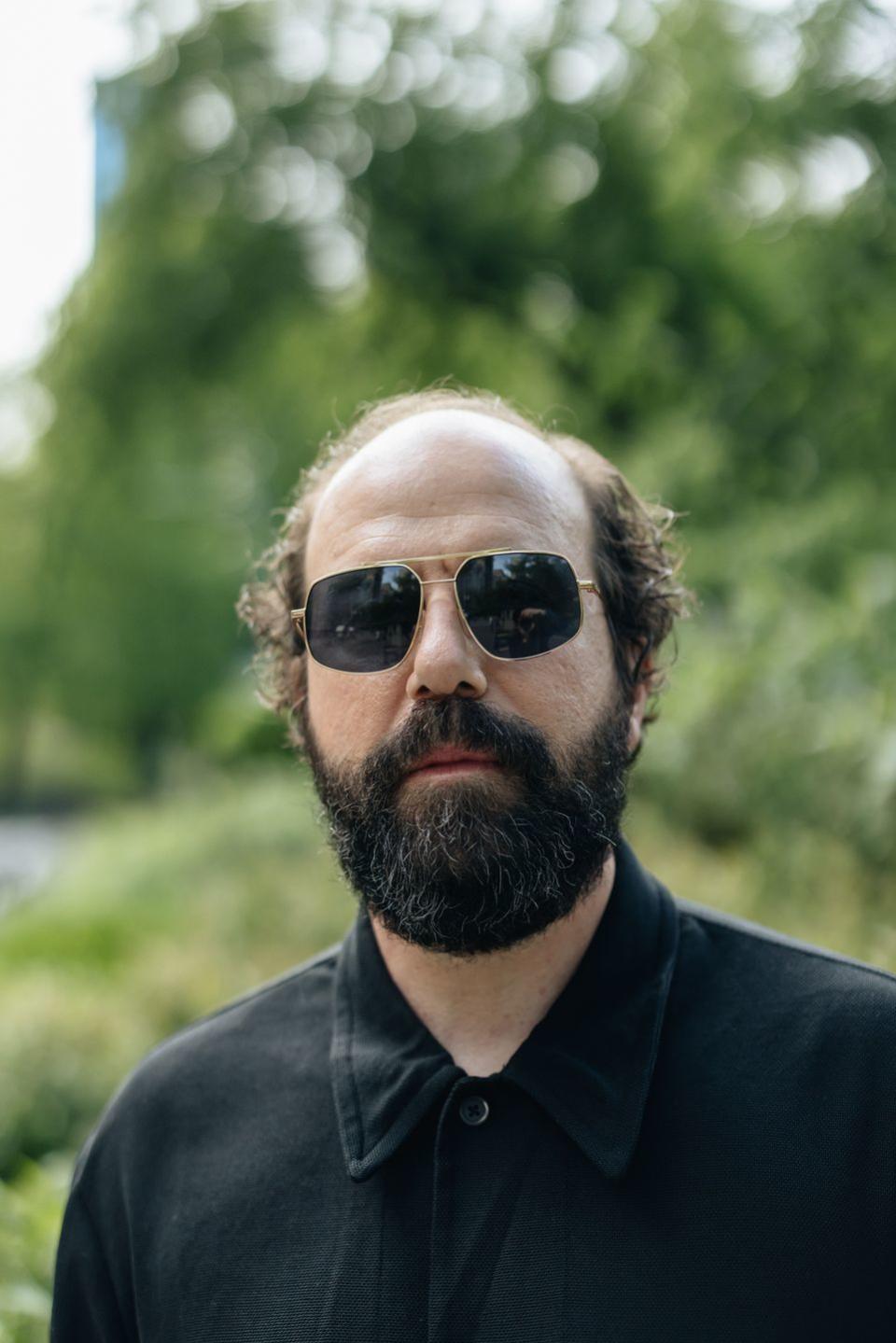
Is there anything you can share about the new season of Stranger Things?
I'm really excited for people to see this season. This is actually the first time I've talked about it since I've seen some episodes. Murray is one of my favorite characters that I've ever played and I am so grateful to the Duffers for allowing me to be a part of this. It's one of the greatest things ever made and this season is high fucking octane. It is every genre taken to the millionth percent. It is so fucking good. I've felt that way about every season, but I feel like the Duffers topped themselves with this one. All of us under their leadership did as well. I'm in it more than I've ever been and I'm so grateful for that.
You Might Also Like

